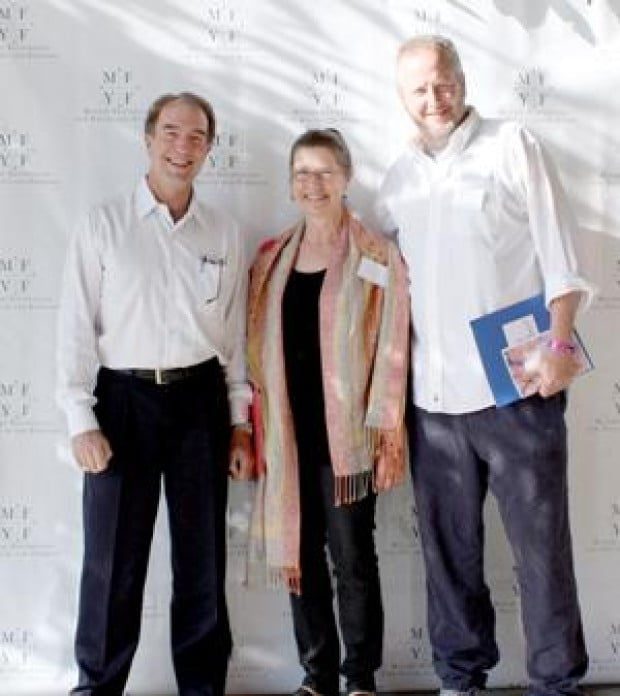
The Malibu Foundation for Youth and Families holds first “Power of Possibility Leadership” conference.
By Karen Portugal York / Publisher and Nora Fleming / Special to The Malibu Times
The questions, “What is wrong with Malibu?” and “How can we use what we have to become the community that we want to be?” were the focus of the Malibu Foundation for Youth and Families’ “Power of Possibility Leadership Summit” convened last Thursday night at the Malibu Jewish Center and Synagogue.
Utilizing the World Café dialogue process, where group discussion takes place at round, brightly decorated “coffee house” tables, the evening vibrated high energy and creativity as more than 200 Malibu residents of all ages experienced this stimulating and “safe” environment, to turn problems into possibilities by sharing their opinions, opportunities and ideas on the status of Malibu’s youth programs.
The conference’s teenage contingent (about one third of the attendees) was anything but shy in articulating their own concerns, criticisms and suggestions, during the lively tabletop discussions. Along with their adult counterparts, each table addressed a set of questions, reporting back to the assembled their insights and ideas for creating new initiatives and building on existing programs.
Introducing the program and its faculty was the program’s chair, Laure Stern, and president of the foundation, Daniel Stern. The facilitator of the program was Ken Homer, founder of Collaborative Conversations, who focused on stewarding participants to think and work together to define and create mutually desired outcomes. Co-facilitating was Liza Taylor, principal of Change Consulting, whose mission was to help the group design unique and practical approaches to solving issues and build on what already works well.
The youth members of the summit expressed that they would like to have more exposure to “the real world” and learn to be more self-sufficient and empowered.
“We all love Malibu but we feel so sheltered and stereotyped,” said Malibu High School student Christie Brydon. “We want to experience things and bring some of those experiences into Malibu. It would let us love Malibu so much more.”
The audience-wide discussion focused on how to take what Malibu has and utilize it to offer support for the city’s youth.
Ideas voiced included providing Malibu’s youth with a sense of empowerment by building relationships between teens and adults for internship and mentorship opportunities, and letting teens take on more responsibility within the city, such as managing certain city-sponsored events like Malipalooza.
“The yoke around a kid’s neck is either extreme poverty or extreme wealth,” Allan Young, president and CEO of the Boys and Girls Club of Santa Monica, said. “Your children need and deserve [resources/support], but you don’t need to go to other communities to find it. There is a lot right here.”
The success of the evening was celebrated with an impassioned appeal for participants to continue the discussion and to act on the ideas generated by volunteering, joining a committee or the board.
“The over-arching theme [in Malibu] is the power of privilege, but with this privilege comes power,” said Stern, who added he hoped the organization could develop a more efficient business model to follow through with the suggestions. “The mark of an activist community is a community that teaches youth to be good citizens. We [in Malibu] have the power to build the next generation of philanthropists who are active socially and politically.”
More information on theMalibu Foundation for Youth and Families can be obtained online at www.malibuyouth.org
